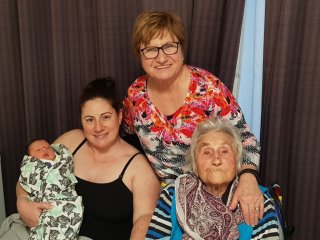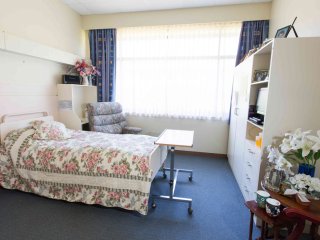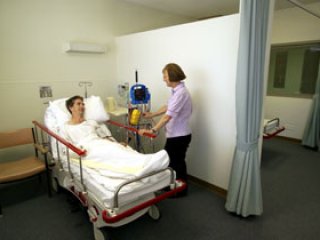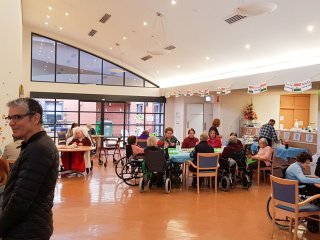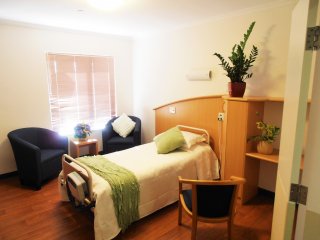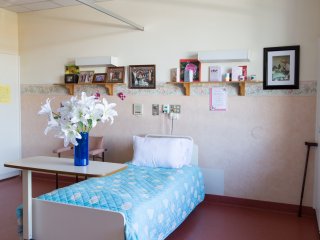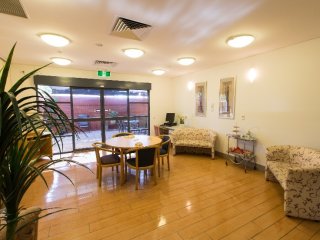Power of Attorney
We advise that before entering residential care that you have both:
- Enduring Power of Attorney.
- Enduring Power of Attorney (Medical Treatment).
Power of Attorney forms are available on the Office of the Public Advocate website or at most newsagents, post offices or from your solicitor’s office.
All residents have rights to freedom of choice whenever this does not infringe upon the rights of others. Your rights here are the same as if you are in the community. The Aged Care Rights Advocacy Service offers free, confidential and independent services to older people (or their representatives) who are receiving an Australian Government subsidised aged care service in South Australia.
The Aged Rights Advocacy Service
The Aged Rights Advocacy Service protects the rights of aged people and their officers will be happy to discuss any matters of concern with you. The Service can be contacted on 08 8232 5377.
Complaints
Although we aim to provide quality care to our residents, you and / or your representative are entitled to comment or complain about conditions in the residential aged care facility. The facility views all complaints as a means of ensuring quality and continuous improvement.
The process of complaints is taken seriously and every effort is made to rectify the issue in a timely manner for all parties concerned. We conduct regular surveys which provide residents and their representatives with the opportunity to comment on the standard of care and services provided.
Charter Of Residents’ Rights And Responsibilities In Approved Residential Care Service
Preamble: Every person has the right to freedom & respect and the right to be treated fairly by others. A person’s rights do not diminish when he or she moves into a Residential Aged Care Facility, regardless of his or her physical or mental frailty or ability to exercise or fully appreciate his or her rights. A positive, supportive and caring attitude by family, friends, Aged Care Home proprietors and staff, carers and the community will help people who live in nursing homes to continue as integral, respected and valued members of society.
This Charter affirms those social justice principles. The personal, civil, legal and consumer rights of each resident are not diminished in any way when he or she moves into a Residential Aged Care facility. The Charter recognises that residents have specific rights and responsibilities which balance the needs of the individual against the needs of the Residential community as a whole.
The Charter of Residents’ Rights and Responsibilities
Note: Below the term ‘residential care service’ means the same as
‘Aged Care Home’
A. Each resident of a residential care service has the right:
- To full and effective use of his or her personal, civil, legal and consumer rights;
- To quality care which is appropriate to his or her needs;
- To full information about his or her own state of health and about available treatments;
- To be treated with dignity and respect, and to live without exploitation, abuse or neglect;
- To live without discrimination or victimisation, and without being obliged to feel grateful to those providing his or her care and accommodation;
- To personal privacy;
- To live in a safe, secure and homelike environment, and to move freely both within and outside the residential care service without undue restriction;
- To be treated and accepted as an individual, and to have his or her individual preferences taken into account and treated with respect;
- To continue his or her cultural and religious practices and to retain the language of his or her choice, without discrimination;
- To select and maintain social and personal relationships with any other person without fear, criticism or restriction;
- To freedom of speech;
- To maintain his or her personal independence, which includes a recognition of personal responsibility for his or her own actions and choices, even though some actions may involve an element of risk which the resident has the right to accept, and that should then not be used to prevent or restrict those actions;
- To maintain control over, and to continue making decisions about, the personal aspects of his or her daily life, financial affairs and possessions;
- To be involved in the activities, associations and friendships of his or her choice, both within and outside the residential care service;
- To have access to services and activities which are available generally in the community;
- To be consulted on, and to choose to have input into, decisions about the living arrangements of the residential care service;
- To have access to information about his or her rights, care, accommodation, and any other information which relates to him or her personally;
- To complain and to take action to resolve disputes;
- To have access to advocates and other avenues of redress; and
- To be free from reprisal, or a well-founded fear of reprisal, in any form for taking action to enforce his or her rights.
B. Each resident of a residential care service has the responsibility:
- To respect the rights and needs of other people within the residential care service, and to respect the needs of the residential care service community as a whole;
- To respect the rights of staff and the proprietor to work in an environment which is free from harassment;
- To care for his or her own health and well-being, as far as he or she is capable; and
- To inform his or her medical practitioner, as far as he or she is able, about his or her relevant medical history and his or her current state of health.









